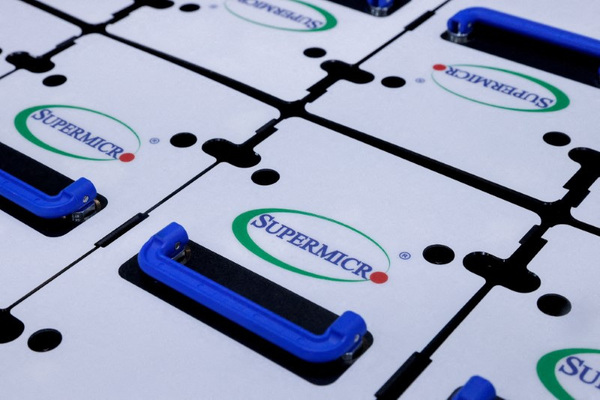Cyber-security myths that could cost your business big

Ryan Cooke at IDS-INDATA warns that many businesses still believe their data is too small to be targeted or that merely meeting compliance regulations ensures complete security
There are many dangerous myths about cyber-security and these misconceptions present a considerable risk. Cyber-attacks are on the rise, and they’re generally indiscriminate. Cyber-criminals don’t discriminate based on company size—they target any business with valuable data. Yet despite the increasing frequency of cyber-attacks, organisations continue to operate under outdated and dangerous cyber-security myths. These misconceptions can lead to costly breaches and data losses, creating and widening vulnerabilities.
Here are ten of the most common cyber-security myths, which, if not addressed, could cost your business dearly.
1. Our data is too insignificant to be targeted
It’s a myth that only small businesses or those with minimal customer data will not be targeted by criminals. Cyber-criminals exploit any data they can access, including customer records, financial details, or intellectual property. Organisations of all sizes must prioritise data protection to prevent potential breaches.
2. Only IT systems need protection
While IT systems need safeguarding, operational technology (OT) systems are equally vulnerable to cyber-attacks. The failure of OT systems that control critical infrastructure, such as manufacturing equipment, can cause significant operational disruptions. IT and OT must be secured to ensure optimal business performance continues safely.
3. We’re compliant, so we’re secure
Many businesses assume that meeting compliance requirements guarantees their security. While compliance frameworks (like GDPR, HIPAA, or PCI-DSS) provide essential guidelines, the fast-paced evolution of cyber-threats can mean these guidelines often lag. Meeting a standard doesn’t mean you’re fully protected. Security requires continuous assessment and an adaptive strategy to stay ahead of constantly emerging risks.
4. Cyber-attacks are rare and won’t affect us
Not only are cyber-attacks more common than ever before, but they are becoming increasingly indiscriminate. Hackers consistently scan for vulnerabilities as these attacks rise, and businesses are potential targets. To minimise the risk of attacks, businesses must apply a proactive and multi-layered approach to their security.
5. Our employees already understand data security
One of the most common causes of a data breach is human error, and even well-intentioned employees can fall victim to phishing attempts and social engineering tactics. Regular and comprehensive security training is essential to help staff recognise and respond to threats. Providing your staff with continuous education can make safeguarding your business easier.
6. We have a firewall; that’s enough
Firewalls are essential to any cyber-security strategy, but relying on them is problematic. As cyber-attacks become more sophisticated, they can easily bypass simple security measures. A multi-layered defence strategy is recommended, and businesses should integrate tools like intrusion detection systems, endpoint protection, and encryption to help them defend against advanced threats.
7. OT systems can’t be hacked
Operational technology systems (OT) are assumed to be secure because they are isolated from IT networks. However, many OT systems are now connected to the Internet, making them vulnerable to cyber-attacks. Any breach in an OT system can disrupt critical services and leave businesses vulnerable, which is why work must be done to integrate security measures across OT and IT environments.
For example, misconfigurations or unpatched vulnerabilities in OT systems can provide easy entry points for criminals to launch their cyber-attacks, and businesses must evaluate and update their security protocols regularly to minimise these risks.
8. SMEs are not valuable enough to be targeted
Strong cyber-security measures must be in place, no matter the size of your business. Cyber-criminals often target small businesses because they tend to have weaker security defences than larger corporations. This makes them easy targets for hackers who may use them as stepping stones to access larger, more lucrative organisations.
9. Cloud providers take care of all security issues
Cloud providers implement security protocols that cover only part of the security landscape. The provider and the business share responsibility for the cloud, and organisations must ensure they configure their cloud services correctly to manage access controls and protect sensitive data. If these measures aren’t in place, cloud environments become prime targets for attackers.
10. Data privacy laws only apply to large organisations
Data privacy regulations, such as the General Data Protection Regulation (GDPR), apply to businesses of all sizes. Noncompliance can result in substantial fines for multinational corporations or small startups. Therefore, companies must stay informed about relevant laws and ensure compliance to avoid legal and financial penalties.
The evolving cyber-threat landscape
An integrated approach to cyber-security is essential. Attackers understand the value of your data, regardless of its size, and will exploit any weakness they can find. It’s no longer enough to rely on surface-level measures. Businesses must implement proactive, integrated security strategies that protect IT and OT systems. Legacy antivirus software and basic firewalls are no longer sufficient in defending against today’s sophisticated cyber-threats.
Human error plays a large part in cyber-security breaches. Security is a shared responsibility. All systems and staff must be educated and protected. Employees need ongoing training to recognise phishing, social engineering, and ransomware threats. Clear company policies should be communicated, and security awareness programs should be updated regularly to ensure everyone is on the same page.
A focus on proactive cyber-security
Businesses must adapt their strategies to the changing cyber-security landscape to protect themselves. It’s important to dispel these common myths and instead focus on embracing a proactive, integrated approach to safeguarding data from cyber-attacks. This approach minimises the risk of breaches and ensures compliance with data privacy laws. In today’s digital environment, cyber-security isn’t a luxury—it’s a necessity.
Ryan Cooke is Chief Information Security Officer at IDS-INDATA
Main image courtesy of iStockPhoto.com and AndreyPopov

Business Reporter Team
You may also like
Most Viewed
Winston House, 3rd Floor, Units 306-309, 2-4 Dollis Park, London, N3 1HF
23-29 Hendon Lane, London, N3 1RT
020 8349 4363
© 2025, Lyonsdown Limited. Business Reporter® is a registered trademark of Lyonsdown Ltd. VAT registration number: 830519543





